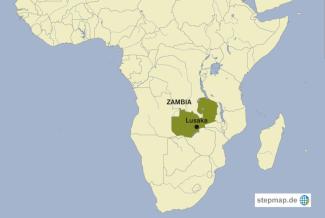Finances
Loans for living and luxury

In Zambia, micro-finance companies have mushroomed. They have names like MFinance, Bayport or Blue Financial Services and hand out ever more loans. Retail banking has emerged in recent years too, with banks like the Zambia National Commercial Bank, Barclays, Bank ABC and Standard Chartered Bank giving credit to middle-class people.
In the past, banks demanded collateral for loans such as title deeds for houses. Today, however, micro-finance institutions (MFIs) and banks have relaxed rules. For example, they only ask salaried workers to provide pay slips. According to Ndumo Hojane, who works for Citibank Zambia, MFIs have “bigger lending lists than commercial banks.”
The MFIs have created new jobs and helped to provide more people with financial services. For various reasons, members of the middle-classes are borrowing money. They want to top up low salaries, invest in children’s education and cover health-care costs. Some want to buy luxury cars or host fancy wedding parties to keep up appearances.
Many public service workers have taken personal loans to build houses. Others need funding for backyard enterprises such as rearing chickens. Victor Sakala, a teacher in the town of Ndola, says that many public service workers are indebted because their salaries are too low: “We live in extended family systems, so the cost of living is high. We are obliged to provide food and education to all our dependants,” Sakala explains.
Other issues compound such worries. For instance, all teachers are required to obtain new degrees for school teaching because the old diplomas and certificates are being phased out. “We pay for our education ourselves, so we need money,” Sakala complains. “Most of us turn to MFIs because banks can tie you to a loan for as long as six years.”
In 2015, Zambia’s currency Kwacha lost 51 % of its value against the dollar. Copper is Zambia’s main export good, but world-market prices are falling. In Zambia, inflation is a huge problem and government debt is high. Public utilities are eager to rake in revenues. In efforts to cover costs, the state-run power company Zambia Electricity Supply Corporation (ZESCO) and water utility companies have installed prepaid metres in compounds where police officers live. “In the past we never used to pay for electricity, and we will soon start paying for water too,” one officer says. His purchasing power will suffer accordingly. The truth is that not only Zambia’s middle classes are struggling to get along – state agencies also find it hard to generate sufficient revenues.
Humphrey Nkonde is a journalist, media researcher and logistician resident in Ndola, Zambia.
zpeopleandplaces@gmail.com











